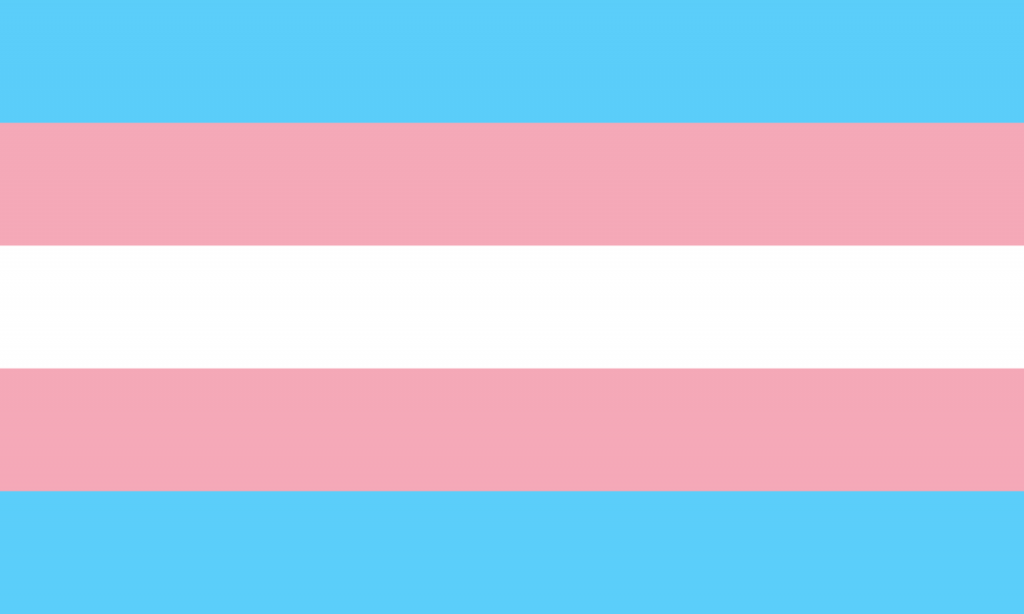



Trans Day of Visibility, an internet holiday that celebrates and showcases transgender individuals, is celebrated annually on March 31. It is the one day a year dedicated to trans people sharing their stories and being seen and heard for their identities, for what has made them who they are.
Trans visibility is important for multiple reasons. For one, it aids in normalizing the existence of trans people and our experiences. With more people talking about their transitions and experiences being trans, coming out and being out seems a lot less daunting.
Visibility is important for those who are unsure of their gender identity, so they can see that there are options aside from cisgender (or, your gender assigned to you at birth). Visibility of other trans people alleviates some stress and pressure in one’s own coming out journey. Visibility can help someone who is trans realize that a lot sooner, too; if someone doesn’t have out and visible people like them to look to, or even just the knowledge of people like them existing, they have no way of knowing what their feelings or hunches mean, or they may not feel safe expressing them.
Additionally, visibility is important for cisgender people, especially parents and guardians, to see that it is okay and perfectly normal and acceptable for their child or other children in their lives to be trans and/or questioning their identity. It also gives parents some insight into their child’s identity if they are trans, and eases the transition experience on all fronts. Trans kids face a lot of adversity and flack for their identities, in part because their family and other adults are generally unaware or uninformed on issues such as these.
While it is just one day a year, Trans Day of Visibility is so incredibly important for trans people and those in their lives.
To end this article:
Hi, my name is Elliot, and I am a trans man. I came out as trans in August 2019, but I’ve known I am trans since 2014. It has been a rough several months, but it has also been rewarding, and I wouldn’t change my experiences or my identity for anything. I am out, and I am proud. I, and others like me, are going to continue to be out and proud; trans people are not going anywhere.

COVID-19 got you down? Feeling unmotivated after being sent home from school? Not able to go outside for long periods of time or hang out with friends? Me, too. Here are some ways I’ve been keeping busy while social distancing.

In these uncertain times of COVID-19, many people are left stressed and with an abundance of time on their hands. With these 10 movies, you will not only fill some time but also get your mind off of all of the hectic craze.

The Weeknd has returned with the launch of a new era with his latest album “After Hours.” Two years after his EP “My Dear Melancholy,” Abel released his most realized album to date — a brand-new album to listen to during these tough times.
It was a smart move to release new music because not only does it boost music sales on his end, but it gives his listeners something to listen to while being on lockdown. The Weeknd said “let music heal” and that’s exactly what this album has been doing.
“After Hours” emphasizes The Weeknd’s tendency to maintain his solipsistic hedonist character’s role. It’s no secret that all of his records hold a mixture of masochist and sadistic passive-aggressiveness and sexiness. However, “After Hours” mixes all of those things with an added hint of romantic desolation, psychedelic wooshes and cinematic flare, all while staying true to his R&B roots.
The opening track, “Alone Again,” is smoldered in an ominous and hollow tone that is syncopated with The Weeknd’s voice. “Alone Again” sets the mood for the rest of the album, which is why it’s clear that the rest will be the most bare and vulnerable we have seen him. Like “Alone Again,” the song “Too Late” continues this theme of despair by showcasing Abel’s own destruction in a self pity-party, mourning a relationship that was ruined by his own self-indulgence and making himself look like a self-loathing villain.
Musically, “After Hours” is the perfect balance of cinematic narrative, dream pop and R&B. “After Hours” is the most different from any of The Weeknd’s albums because we finally get to witness the singer learn how to feel without the use of sex and drugs. On this album, Abel allows himself to become tender and vulnerable as he picks up the remainders of a failed relationship. Although this is definitely a post-breakup autopsy, and it’s meant to be raw and emotional, it is definitely the most unguarded we have seen Abel thus far.
The Weeknd is no longer the addict he once was in his “Trilogy,” but he’s also not the partner women want him to be. However, he is continuing to evolve and reinvent himself and knows how to keep the fans hooked. Whether it be in a world of filling voids through sex, drugs and romance, the universe of The Weeknd is just getting started with torture, melancholia and a drunken, disastrous love. That is the wonderful haze of “After Hours.”